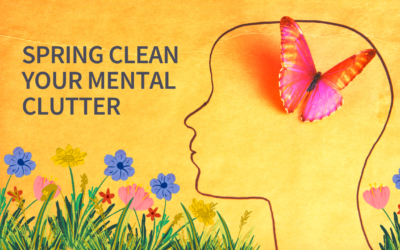 As a life coach, part of my job is to encourage you to persevere and attain stretch goals. Perhaps it seems odd that I am suggesting that you NOT always do the hard things.
As a life coach, part of my job is to encourage you to persevere and attain stretch goals. Perhaps it seems odd that I am suggesting that you NOT always do the hard things.
The other part of my job is to meet you where you are.
And some days, that means sitting with you in the midst of a meltdown and not trying to change a thing.
Stick-to-it-iveness
Western culture prizes being positive, working hard, and placing mind over matter.
And I value those actions, too.
I also think it’s a mistake to believe placing mind over matter applies all of the time.
Most people benefit from a combination of stick-to-it-iveness and self-compassion.
Try a little tenderness
I refuse to believe that the answer has to be forcing yourself to do hard things all the time. Why? Because it ignores the times when we need self-compassion.
Self-compassion says, “I see you are having a hard time. It’s okay, love, you can rest today.” And then you give yourself permission to do that without feeling guilty.
When we are tuned in to our inner knowing, we can differentiate the times we just need to squeeze in a bit more effort to get to the finish line and when we are at a point where BE-ing is the best strategy.
Resisting our emotions causes so much unnecessary inner turmoil.
It’s ironic. You may think that by allowing yourself to have a guilt-free day of BE-ing, you are wasting time and acting irresponsibly. In truth, by resisting letting yourself feel your emotions, you prolong the process of making progress.
And you feel crummy along the way because you are neither supporting your own needs, nor are you getting lots done.
So, give yourself permission to try a little kindness and self-compassion.
Why I am applying self-compassion today
Just over a week ago, my beloved mother died. She was diagnosed with Lewy Body Dementia three years ago. Dementia is the umbrella term for brain impairment and decline. Of the over 400 different types of dementia, Alzheimer’s, Lewy Body, Vascular, and Fronto Temporal are the most common. The U.S. sees three million cases of dementia a year.
The kind of dementia my mom had—Lewy Body—had a less predictable decline than Alzheimer’s. My mom saw hallucinations, such as a snake or a little boy in one of the big oak trees on the property. The hallucinations didn’t scare her as much as wig us out, especially when the imaginary boy didn’t have a head.
I’ve heard dementia described as the long goodbye. And it is.
Dementia progresses from forgetfulness to the death of the pre-frontal cortex, which is responsible for monitoring which actions are appropriate or inappropriate. When that “governor” departs, the amygdala, which responds to music and things with a strong emotional connection, becomes more prominent. It’s one reason why music is used with people affected by dementia.
Eventually, the body forgets how to speak, how to toilet, walk, eat, and breathe. Each stage requires different care. If you have a loved one with dementia, learn about how to interact at every level here: https://teepasnow.com/about/about-teepa-snow/the-gems-brain-change-model/
All this is to say, that I have been preparing for the final good-bye. It was hard and I am allowing my feelings to emerge and making space for them.
Be flexible and responsive
One odd thing about grief is that you think you are feeling better and then—whammo!—you get knocked down at the knees.
I planned to get lots done today. Then I started getting angry and rebellious.
Part of my brain said, “We can do hard things!” The other part said a swear word.
In times like these, I get curious. I ask myself, “What would be the kindest thing I can do for myself right now?”
And then I do that, even if it goes against cultural programming of productivity, because of an important skill I have developed: I trust myself.
It all works out
Because I leaned into my feelings, rather than resisting them, the feelings passed.
I didn’t have to chose between self-compassion and productivity. It took care of itself, which meant I bypassed negative self-talk.
What is possible for you if you practice stick-to-it-iveness when it makes sense and self-compassion when it makes sense?
Can you trust yourself enough to decide what is right?
If you desire to learn how to incorporate self-compassion, I can help. I’m a life coach who encourages you to reach goals and who meets you where you are. Either place is just fine with me.
Email
ka**@ka*********.com
to find out how we can work together.
May you find peace in self-compassion,
Kate



